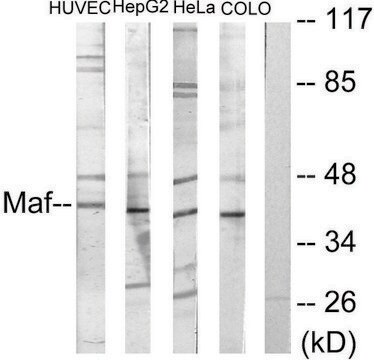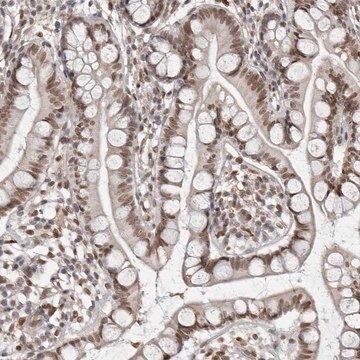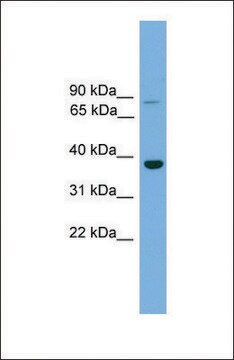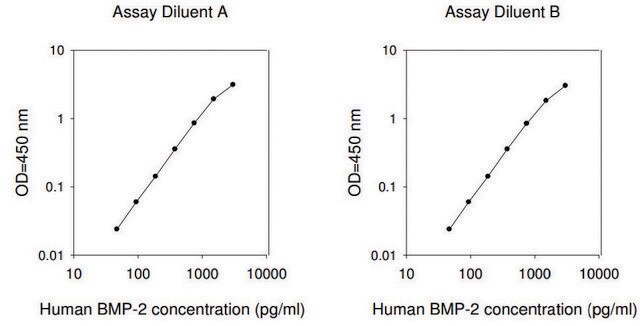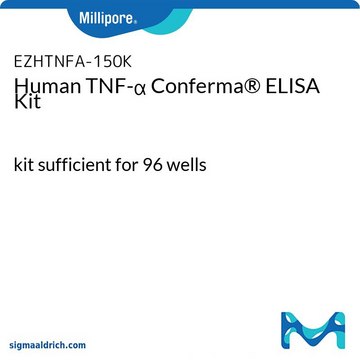WH0389692M1
Monoclonal Anti-MAFA antibody produced in mouse
clone 2F1, purified immunoglobulin, buffered aqueous solution
Synonym(s):
Anti-RIPE3b1, Anti-hMafA, Anti-v-maf musculoaponeurotic fibrosarcoma oncogene homolog A (avian)
About This Item
Recommended Products
biological source
mouse
Quality Level
conjugate
unconjugated
antibody form
purified immunoglobulin
antibody product type
primary antibodies
clone
2F1, monoclonal
form
buffered aqueous solution
species reactivity
human
technique(s)
indirect ELISA: suitable
western blot: 1-5 μg/mL
isotype
IgG2aκ
GenBank accession no.
UniProt accession no.
shipped in
dry ice
storage temp.
−20°C
target post-translational modification
unmodified
Gene Information
human ... MAFA(389692)
General description
Immunogen
Sequence
LEERFSDDQLVSMSVRELNRQLRGFSKEEVIRLKQKRRTLKNRGYAQSCRFKRVQQRHILESEKCQLQSQVEQLKLEVGRLAKERDL
Biochem/physiol Actions
Physical form
Legal Information
Disclaimer
Not finding the right product?
Try our Product Selector Tool.
Storage Class Code
10 - Combustible liquids
WGK
nwg
Flash Point(F)
Not applicable
Flash Point(C)
Not applicable
Personal Protective Equipment
Choose from one of the most recent versions:
Certificates of Analysis (COA)
Don't see the Right Version?
If you require a particular version, you can look up a specific certificate by the Lot or Batch number.
Already Own This Product?
Find documentation for the products that you have recently purchased in the Document Library.
Our team of scientists has experience in all areas of research including Life Science, Material Science, Chemical Synthesis, Chromatography, Analytical and many others.
Contact Technical Service